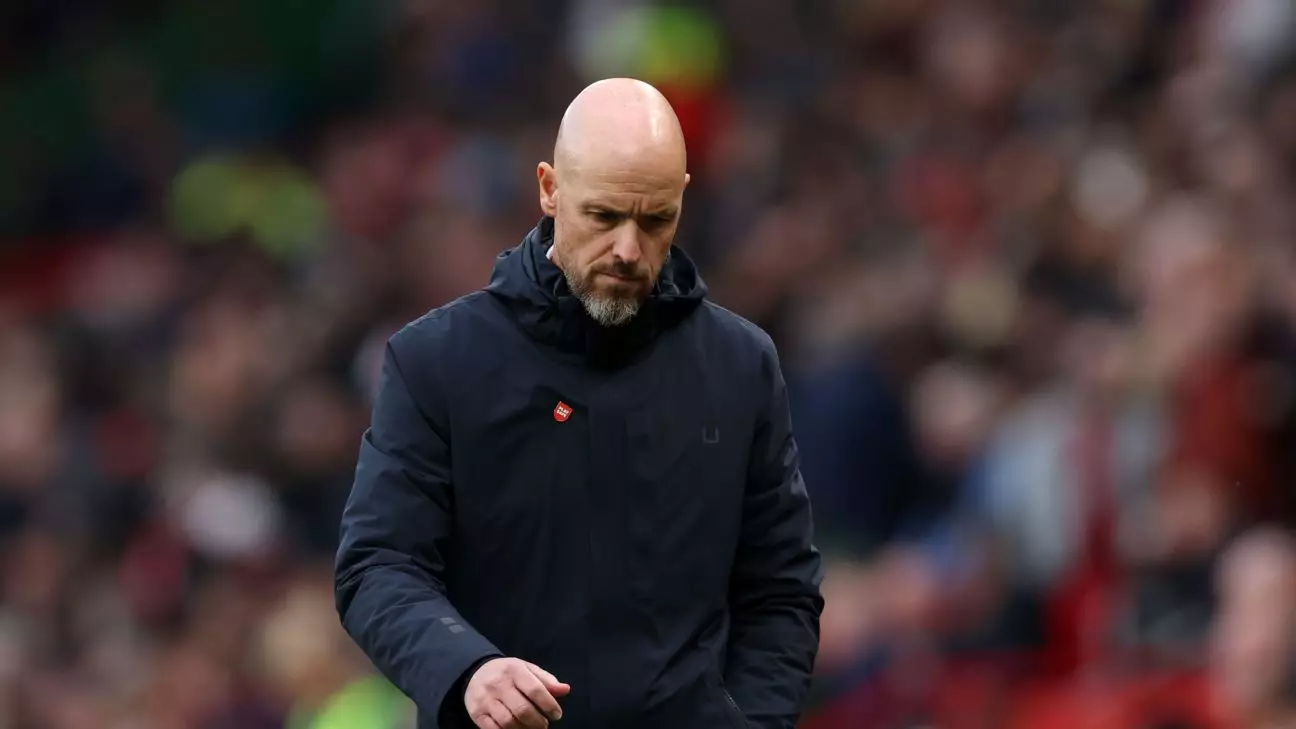Erik ten Hag, the manager of Manchester United, finds himself under intense scrutiny following a brutal 3-0 defeat at home against Tottenham Hotspur. The match, marred by Bruno Fernandes’ first-half red card, epitomized United’s struggles thus far this season, with only three wins from eight matches to show for their efforts. While the immediate aftermath of such a loss often stirs speculation about a manager’s future, Ten Hag has openly stated that he remains unperturbed about the prospect of being sacked. His ability to stay composed amidst adversity speaks volumes about his character and determination.
Despite being a man under pressure, Ten Hag’s insistence on improvement over time underscores a long-term vision that may clash with the impatient nature of football management. Referring to a review conducted during the summer, he reiterated the importance of patience, emphasizing that construction of a cohesive squad does not happen overnight. The stark reality, however, is that performances need to align with aspirations sooner rather than later. Losing to Spurs reinforced the notion that, currently, United are vulnerable, and the players’ execution on the pitch has not matched Ten Hag’s vision.
One of the most alarming aspects of Manchester United’s season has been their defensive frailties, which were starkly highlighted in their Europa League draw against FC Twente. Ten Hag’s disappointment was palpable when a similar goal was conceded in consecutive matches, raising questions about the players’ tactical awareness and discipline. The ease with which opposing defenders are able to slice through United’s midfield indicates an alarming lack of cohesion and awareness. Such lapses, particularly at this level, not only undermine confidence but also lay bare fundamental issues within the squad’s structure.
Looking forward, Ten Hag faces daunting challenges, with significant matches against FC Porto and Aston Villa looming on the horizon. The stakes of these encounters cannot be overstated. A dismal performance in these fixtures would undoubtedly amplify calls for managerial change. This is especially true with the international break on the horizon, which often works as a natural pause that can either bolster or disrupt a team’s momentum. As Ten Hag himself stated, every new match provides an opportunity for learning and growth, but that mental shift needs to translate into tangible results on the field.
As Manchester United navigates through this turbulent period, Ten Hag’s commitment to remain steady is crucial. Football is inherently uncertain, and while the pressure mounts, the essence of long-term planning cannot be compromised. For the manager, the hope resides in his players taking accountability and learning from their mistakes. Whether he can foster an environment seeking improvement or whether the board begins to lose faith remains to be seen. The upcoming matches could very well be watershed moments for Ten Hag’s tenure and the future direction of this storied club.

